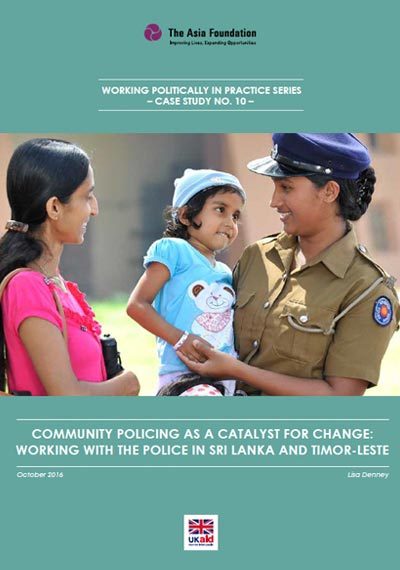Community Policing as A Catalyst for Change: Working With the Police in Sri Lanka And Timor-Leste
This paper explores why community policing has become a popular area of programming, and the opportunities it offers for institutional reform. In post-conflict, post-authoritarian, and high crime environments, community policing is seen as a way to provide the security needed for sustainable development. Yet community policing is also an ambiguous concept, meaning many things to different people. This paper seeks to set out the Foundation’s distinctive approach to community policing. Drawing on ongoing programs in Sri Lanka and Timor-Leste, the Foundation has navigated the high expectations placed on community policing by donors. The paper shows that the Foundation leverages community policing as an entry point into wider policing reforms. The Foundation emphasizes locally led programming and ‘best fit’, rather than ‘best practice’ approaches to reform. This is the tenth paper in the Working Politically in Practice paper series.

